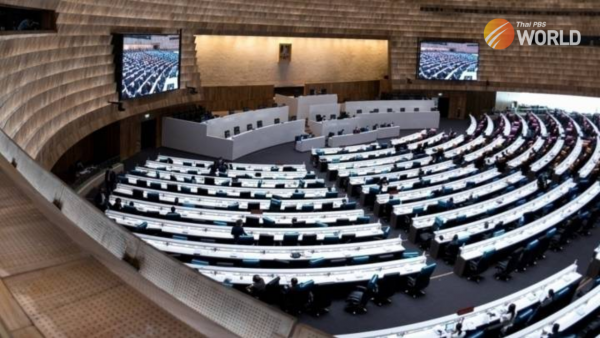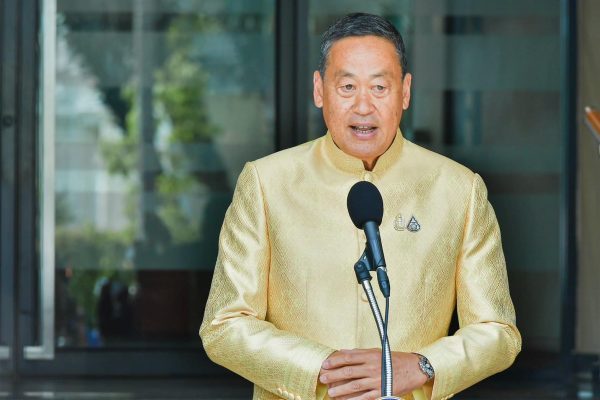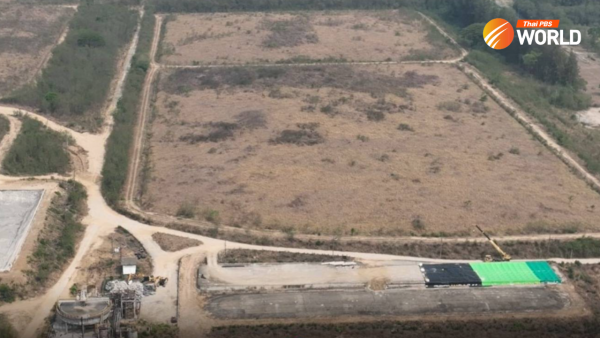Youth forums that ignore real demands a ‘waste of time’

Activists and academics have criticized the Prayut government’s new youth forums as a propaganda exercise aimed at retaining power while excluding student protesters’ calls for change in the country.
“It’s clear the government is not sincere or even willing to listen to us, so there’s no point in us joining these forums,” Tattep Ruangprapaikitseree, secretary-general of the Free Youth movement, said earlier this week.
Tattep was speaking after the Higher Education, Science, Research and Innovation Ministry and the National Economic and Social Development Council (NESDC) invited youth representatives to attend the new forums.
However, the protesters’ three key demands – an end to intimidation of critics, dissolution of Parliament, and a Constitution that reflects the will of the people – were nowhere to be seen on the agenda.
Instead the forums addressed unrelated topics and promoted the behaviour of “good children” who disagree with recent student-led protests.
“Our first demand was rejected outright when police arrested several protesters. Arrests took place even after the government said it would hear us out,” Tattep said.
He himself was detained last Wednesday on charges of inciting unrest for attending a rally organized by the so-called “Free Youth Movement” in July.
In response to mushrooming student-led protests, Prime Minister General Prayut Chan-o-cha on August 4 instructed NESDC to hold forums for student protesters to air their opinions. He later nudged Higher Education, Science, Research and Innovation Minister Anek Laothamatas to hold similar forums as well.
Anek agreed to invite university student leaders to participate in his ministry’s forums. However, when pushed to elaborate, he said these forums would focus on research budgets, innovations, communities, job opportunities, and the like.
Anek recently met university executives to discuss education directions but used the opportunity to ask them to keep a close eye on student activists.
“The prime minister is worried that student-led protests, like the one at Thammasat University’s Rangsit campus, will include lese majeste speeches,” he said.
Anek was referring to the rally at which protesters read out a 10-point manifesto for monarchy reform. The 10 demands include scrapping the lese-majeste law, reducing public spending on the royal family and abolishing the Privy Council (King’s advisers) along with other “unnecessary units”.
The minister has also been promoting student activities focused on loyalty to the monarchy on his Facebook page.
Hard power
His stance matches that of Prayut, a former Army chief and coup leader, who has warned the country risks plunging into turmoil if protesters challenge its three pillars – nation, religion and monarchy.
Meanwhile, the NESDC has held several youth forums, but their agenda has been limited to themes such as curriculum improvement, environmental issues and job opportunities for students. The core demands being made by protesters are not being discussed.
Stithorn Thananithichot, a senior research associate at King Prajadhipok’s Institute, concludes that the forums are being held to help the government maintain its grip on power.
“The government has both hard and soft power in its hands. When protests occur, it exercises hard power by arresting protest leaders, before shifting to soft power by holding forums for students who are ‘good’ in its eyes,” he said.
Stithorn said protesters’ scepticism over government promises to listen to their voices was understandable, given that government figures had already changed their stance on the issue several times.
“In early August, the prime minister promised forums would be held for students to voice their views. But then a week later, his government clamped down by restricting areas where students can hold political activities. On top of that, they arrested protest leaders,” he said.
Stithorn said the government tried to shift responsibility for the crackdown on to police, claiming they were only doing their duty as law enforcers.
“In reality, the government could send a signal [to tolerate protest] and authorities would naturally take that lead,” he said.
However, while the government has ignored protesters’ calls to end intimidation, it has been more responsive to demands for a charter rewrite, said the prominent academic.
He suggested if the government was sincere in its promise to listen to young protesters, it should speed up the charter change process and engage the youth.
Athapol Anunthavorasakul, a lecturer at Chulalongkorn’s Faculty of Education, said authorities should reach out to young critics through agencies that work with students.
“Listening deeply to their demands is necessary. If the authorities have no intention to listen, then forums will just be a waste of time,” he said.
He also warned that if students were not given proper channels to voice demands, then they will find alternative platforms.
Meanwhile Anek said his ministry will organize activities for university students nationwide over the next two weeks.
“These activities are not political, but designed to serve the country,” he said.
By Thai PBS World’ General Desk






